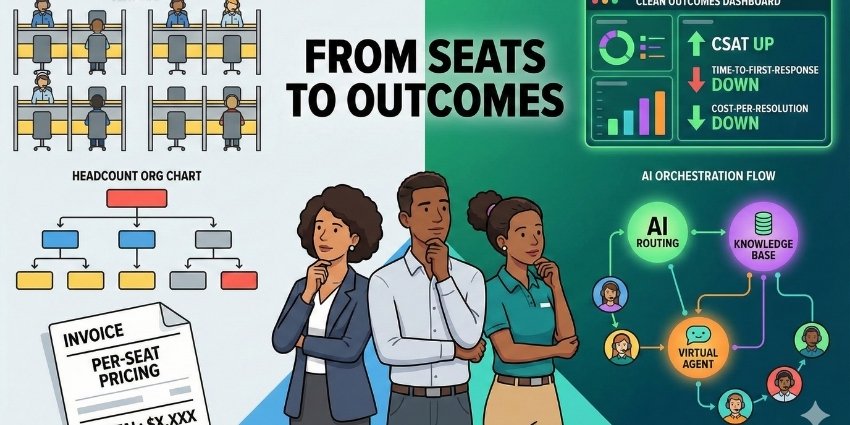Several of the interactions that your agents conduct could technically qualify as a verbal contract. If an agent makes a promise to a customer in exchange for payment, or if a customer agrees to share their data basis certain conditions, it could count as a legally binding agreement. When conducting audits or during compliance checks, the ability to recall verbal contracts can make a major difference to your contact centre operations.
But how do you go about recording verbal contracts and ensuring their legality? Here is a quick guide.
What is a Verbal Contract?
Verbal contracts (also known as verbal agreements or oral agreements) are initiated when two or more entities arrive at a consensus, without any written documentation. In some regions, the consensus could involve a quid pro quo or a direct payment/incentive in return for an action to qualify as a contract.
Typically, verbal contracts are legally binding and can be further solidified with a formal letter of intent. As your contact centre speaks with a variety of customers on numerous issues every day, they might be initiating verbal contracts.
- The agent letting the customer know that the call may be recorded obtains implicit consent from the customer. They arrive at a consensus to record whatever data might be exchanged, thereby creating a verbal contract
- The agent can promise that a product will be shipped within a particular timeline or that certain terms and conditions will be fulfilled. If the customer has already paid for the service or intends to pay for the service, a verbal contract is created
However, the exact nuances of verbal contracts can differ from region to region.
Verbal Contract Compliance Norms
Regulations around verbal contracts or oral agreements vary across the world. In the province of Alberta, Canada, for example, a verbal contract for the future delivery of goods or services is enforceable by law, as long as the value of said goods is less than $50. Beyond this amount, a written contract is recommended.
In the UK, verbal contracts apply to any service that involves remuneration. But there are exceptions such as property purchase, tenancy agreements, consumer credit contracts, and intellectual property rights. An important condition for verbal contracts for their legal enforcement is comprehensiveness – both parties must discuss and agree to all of the terms and conditions of service delivery and remuneration.
These nuances must be kept in mind when contact centre agents enter into verbal agreements on behalf of the company. It is advisable to refer to in-house legal counsel for clarification in case of doubts.
Technologies You Need for Verbal Contracts in a Contact Centre
Contact centres must have a call recording solution in place to document impromptu verbal contract creation and make it referenceable in case of future audits/litigations. Speech analytics is another useful tool, as it can detect common phrases associated with verbal contracts such as “I agree” or “that sounds good,” making it easier to lookup possible instances of verbal contracts in your recordings database.







